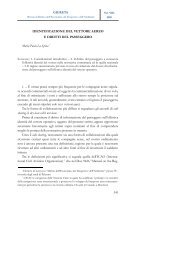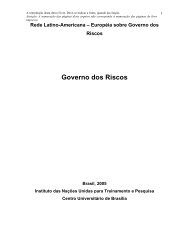Rome II and Tort Conflicts: A Missed Opportunity Abstract Contents
Rome II and Tort Conflicts: A Missed Opportunity Abstract Contents
Rome II and Tort Conflicts: A Missed Opportunity Abstract Contents
Create successful ePaper yourself
Turn your PDF publications into a flip-book with our unique Google optimized e-Paper software.
SYMEON C. SYMEONIDES ROME <strong>II</strong> AND TORT CONFLICTS<br />
avoid the application of French law because the connection with Engl<strong>and</strong> (which<br />
Article 4(1) a priori condemns to a state of insignificance) will probably not qualify<br />
as “manifestly” closer than the connection with France. The same would be true with<br />
other issues affecting the victim’s recovery. Suppose, for example, that the avalanche<br />
caused the death of one of the English tourists, <strong>and</strong> one of the issues in the case is who<br />
is entitled to compensation for his wrongful death. Suppose that French law provides<br />
that compensation is due to the victim’s surviving spouse <strong>and</strong> children together,<br />
whereas English law provides that compensation is due to the surviving spouse to the<br />
exclusion of the children. Under Article 4(1), the applicable law shall be the law of<br />
the country in which “the damage occurs” (France) “irrespective of the country or<br />
countries in which the indirect consequences of that event occur” (Engl<strong>and</strong>). Article<br />
15 reiterates that in such a case, French law will apply to virtually all issues likely to<br />
arise in tort litigation, including “[which] persons [are] entitled to compensation” <strong>and</strong><br />
“whether a right to claim damages or a remedy may be transferred, including by<br />
131<br />
inheritance.” Yet Engl<strong>and</strong> is the country most intimately involved <strong>and</strong> has the best<br />
claim to apply its law to this issue. Rules designating the beneficiaries of a wrongful<br />
death action reflect a society’s assumptions regarding how a person’s death impacts<br />
his survivors <strong>and</strong> which of his survivors are likely to have the highest need for<br />
compensation. These assumptions <strong>and</strong> value judgments belong to the society in which<br />
the victim lived, not to the society in whose territory the injury occurred. In <strong>Rome</strong> <strong>II</strong>’s<br />
terminology, Engl<strong>and</strong> is “manifestly more closely connected” with regard to the issue<br />
of wrongful death beneficiaries, even if its connections with regard to other issues may<br />
not be the closest. Yet, the phrasing of the escape clause does not permit this focus on<br />
the specific issue, <strong>and</strong> therefore does not allow a court to cure the rule’s deficiency.<br />
Similar problems are encountered in employing the “manifestly closer<br />
connection” escape to cases falling within the scope of the common-domicile rule,<br />
especially those in which, as noted earlier, that rule is either too broad or too narrow.<br />
In the case of the French traffic accident involving two Austrians, one could argue<br />
that, with regard to issues of conduct <strong>and</strong> safety, France has a “manifestly closer<br />
connection” than Austria, <strong>and</strong> thus French law should govern. The problem with this<br />
otherwise sound argument is that it runs against the restrictive <strong>and</strong> holistic wording<br />
of the escape, which does not allow an issue-by-issue analysis <strong>and</strong> instead speaks of<br />
the whole “tort/delict,” as opposed to certain aspects of it, as being more closely<br />
connected with another country. This wording makes it difficult to argue that the<br />
entire tort is more closely connected with France, while also being governed by the<br />
law of Austria. The same problem exists in the case of the Kenyan hunting accident<br />
involving the French <strong>and</strong> Belgian hunters. Because the escape is worded in<br />
geographical terms, <strong>and</strong> the hunters are not domiciled in the same country, geography<br />
would work in favor of, not against, the lex loci. One provision that can help in the<br />
French, but not the Kenyan, accident case is Article 17, which allows a court to “take<br />
131. ROME <strong>II</strong>, art. 15 (f) & (e).<br />
56 AMERICAN JOURNAL OF COMPARATIVE LAW (2008) PAGE 29 OF 46



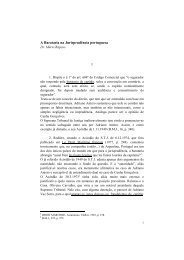

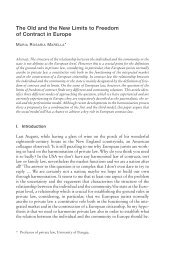

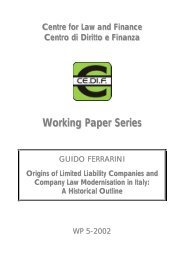
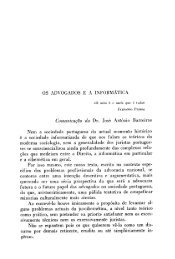
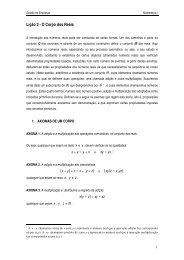
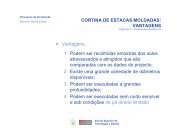
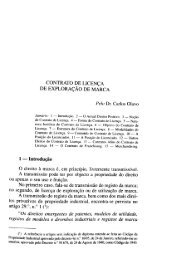
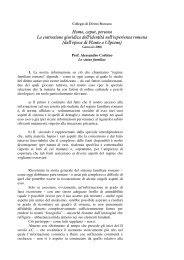
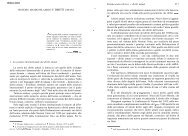

![Luigi Sapio Nozione di islām La parola “islām” [ ] è il mas.dar1 ...](https://img.yumpu.com/15836073/1/185x260/luigi-sapio-nozione-di-islam-la-parola-islam-e-il-masdar1-.jpg?quality=85)
